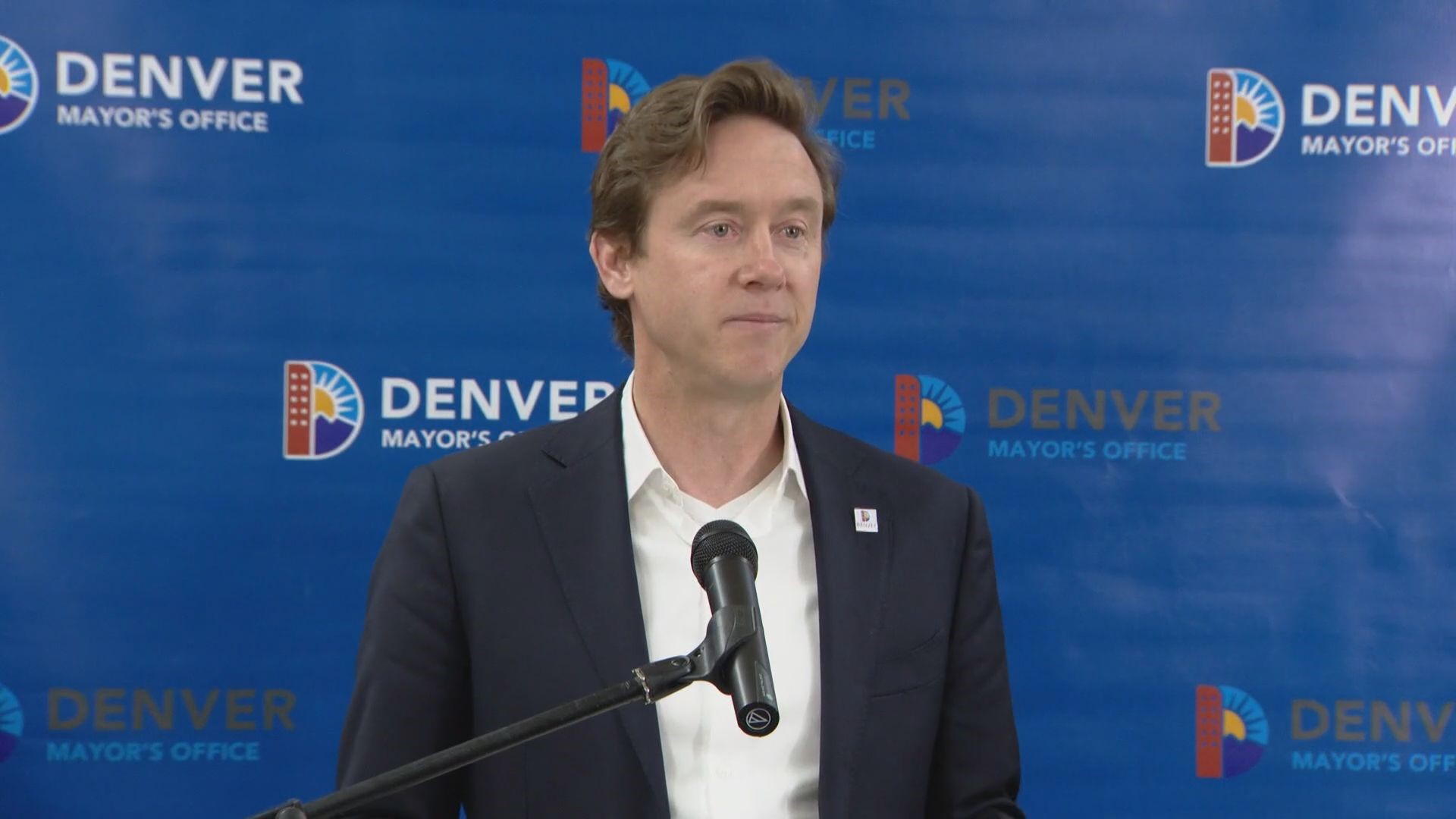DENVER — Denver Mayor Mike Johnston said Wednesday that the city will close four hotels that are currently being used to house migrants. He said the move will save the city roughly $60 million, which will reduce the budget shortfall from $180 million to $120 million.
"It does feel like a turning point for us," Johnston said. "It seemed like the challenge kept getting harder and harder. It was almost as if the federal government wanted to prove they could make the hill steeper and steeper at every moment, thinking that we would give up. But we didn't, and we instead found a way to say we can deliver a solution that matches both our values. We can both still be a city that's welcoming and we can be a city that realizes we have to be conservative with our fiscal resources."
Right now, the city is operating the following shelters.
- Seven non-congregate hotel shelters
- One congregate shelter, with one on standby if needed
- One transitional housing facility
The goal is to close one of the hotel shelters per week over the next four weeks, Johnston said. The hope is to keep them closed as the city shifts its focus to case management.


According to an agenda for Wednesday night's city council meeting, about 39,000 people have been housed in Denver shelters since December 2022. The numbers were small at first but there was a dramatic increase in the fall, followed by a slight decrease before the numbers skyrocketed again in January and February of this year.
RELATED: Denver Clerk and Recorder says his office will not comply with budget cuts requested by mayor
Around the time of the peak, Denver changed its policy and began discharging some migrants from housing once again. The city had paused the discharge of migrant families on Nov. 17 and had welcomed families who had previously timed out to return to shelters.
> Watch Wednesday's news conference below:
They've since shifted resources to focus on resources for migrants so that they're prepared and won't end up on the street once their allotted time has ended.
"So we know everyone who is leaving three weeks from now," Johnston said. "And we have assigned them all to one case management team or one team at one given shelter, and they're supporting all of those geographically. They know exactly who their 100 families are, and they have three weeks to get them from where they are now to get them placed. And they're intently focused on just those 100 families."
City leaders said so far they've seen success. Johnston said they have not seen an increase in the number of people living on the streets since changing their discharge policy.
"During all of this time, I have been, and I know a lot of Denverites have been, worried about people living on the streets, and because of these concerted efforts with case management, we do not see people living on the streets," said Council President Pro Tem Amanda Sandoval. "I'll just end by saying none of this would be possible without the community partners who have stepped in, the residents who have stepped in."
They're also working to get migrants work authorization. They said 600 people have gone through clinics and another 700 people are expected to attend those clinics in the next two weeks.
“Once we get them into the actual work clinics, we have lawyers standing by, immigration attorneys at times as well, you know, so a specialized field there,” Denver Human Services spokesperson Jon Ewing said. “We have volunteers ready to help, city staff, nonprofits.”
Ewing said a three-month low in shelter numbers is helping.
“The fact you have 20 or 30 people coming in per day instead of 200, 300 per day makes everything so much easier,” Ewing said. “It means we can really wrap our arms around people in a better way.”
The mayor has previously predicted the city is $180 million short on its budget because of spending on migrants. The shelter closures could reduce that by up to $60 million – but budget cuts are still on the table.
"That still leaves us $120 million in cuts to make, so that still means we have work to do across the city on how to reach those," Johnston said. "We also think there may be more opportunities that we can find to continue to make these programs more cost-effective."
SUGGESTED VIDEOS: Politics

